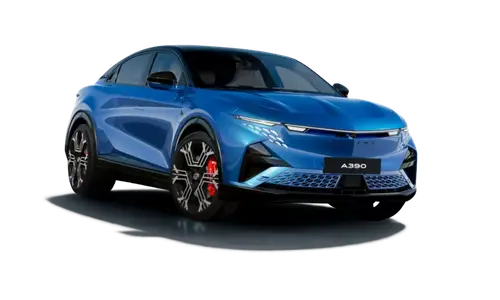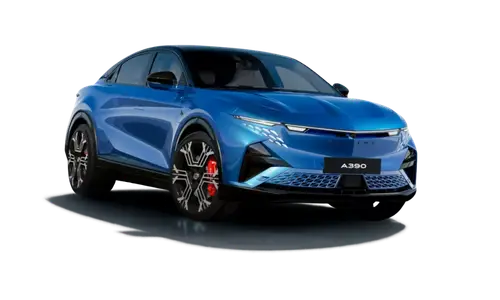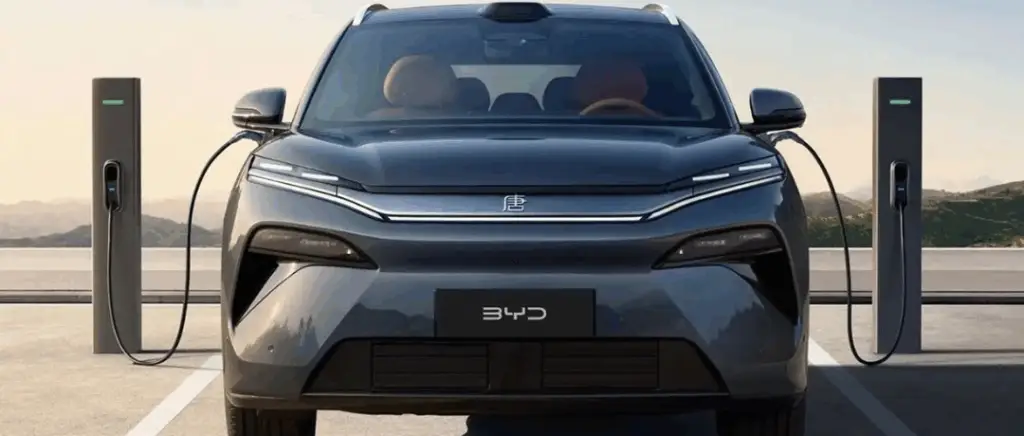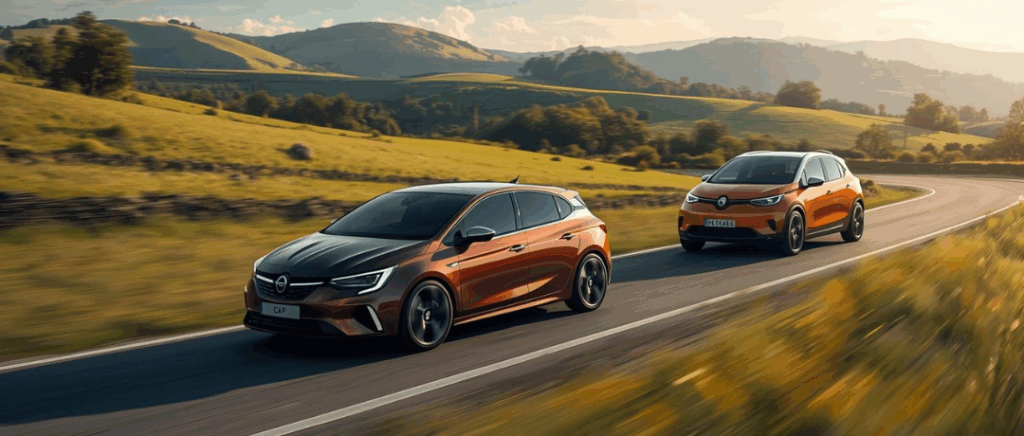Our experts answer your questions with a smile
Monday to Friday 9am - 12.30pm - 2pm - 7pm
Companies: I love you, I love you not
Companies are amazing: they create products from nothing, generate wealth for their investors and give jobs to employees. Companies have financed medicines that have changed patients' lives. They have connected the world to the internet and improved our quality of life.
But all is not so rosy. Companies also have a negative impact on our lives. Some have been found guilty of poisoning us and our food. Others use children to manufacture their products. Some go further by manipulating the truth to elect a candidate in a political election.
But that was before... In 2019, companies are no longer going unpunished. In recent years, consumers have become increasingly aware of the issue. Consumers are taking back their power and demanding transparency and impeccable ethics from companies.
And consumers are prepared to go as far as boycotting to change things. Last March, for example, actor George Clooney called for a boycott of a list of hotels. Consumers were outraged by the new penal code introduced by the Sultan of Brunei, which provides for the stoning or flogging to death of homosexuals and adulterers. The actor decided to launch acall for a boycott of luxury hotels linked to the sultan. This appeal was followed by thousands of people.
Why should a company have a CSR (Corporate Social Responsibility) strategy?
It is for these reasons that many companies are committing to ambitious CSR (Corporate Social Responsibility) policies. The MEDEF, for example, wants to accelerate its CSR initiatives in France. Itsees ecology as an opportunity for growth in France.
Companies know this. They will be held accountable for their actions by employees, shareholders, investors, consumers, public authorities and NGOs.
The aim of a CSR (Corporate Social Responsibility) strategy is twofold:
- Improving its image among the various stakeholders
- Increase profitability by investing in new areas
What's more, the younger generations no longer want to work for socially "irresponsible" companies. They are convinced that companies should invest in improving society and look for solutions that will contribute to social progress. If a company wants to continue to be able to recruit talent, it is important to highlight efforts to target these younger generations as future employees but also as consumers.
CSR (Corporate Social Responsibility): definition
The definition of CSR (Corporate Social Responsibility) differs from region to region and from organisation to organisation. In simple terms, CSR (Corporate Social Responsibility) is a way of making companies aware of the consequences of their activity on the planet.
CSR (Corporate Social Responsibility): European Union definition
In its 3rd Communication on CSR (2011), the European Commission defines CSR as "the responsibility of companies for the effects they have on society".. According to the European Commission, CSR (Corporate Social Responsibility) is "the voluntary integration of social and environmental concerns into a company's business operations and its interaction with its stakeholders". In other words, it means "not only complying fully with applicable legal obligations, but also going beyond them and investing 'more' in human capital, the environment and stakeholder relations".
It's a fairly simple philosophy. A company does not have to be subject to a CSR (Corporate Social Responsibility) policy. It can benefit from them and make the most of them. These policies can create a new ecosystem for growth that did not exist before.
The EU, which has exclusive competence in trade matters, also contributes to strengthening social and environmental standards around the world by including a CSR (Corporate Social Responsibility) chapter in the free trade agreements it concludes. European countries can include CSR (Corporate Social Responsibility) chapters and make proposals. This is particularly the case for France, which has made proposals to strengthen this practice in contracts with several countries.
The European Commission publishes directives for targeted sectors to raise awareness of CSR (Corporate Social Responsibility) policies.
CSR (Corporate Social Responsibility): the ISO 26000 standard
In 2010, the International Organization for Standardization published the ISO 26000 standard which defines how organisations can contribute to sustainable development. This standard is more educational than restrictive.
"On the other hand, it clarifies the concept of social responsibility, helps companies and organisations to translate principles into concrete actions, and publicises best practice in social responsibility throughout the world. It is aimed at organisations of all types, whatever their activity, size or location."
ISO 26000 is not a certifiable standard. However, it can enable an organisation to obtain a label or be used for evaluations or audits.
CSR (Corporate Social Responsibility): obligations in France
Large French companies are obliged to publish a CSR report every year. This obligation follows the Grenelle II laws of 2010.
But don't panic, only a few companies are affected:
- Companies listed on the stock exchange
- With sales in excess of €100 million
- And a payroll in excess of 500 employees.
Since 2017, publication of the CSR report (or corporate social responsibility report) has been mandatory. This report is better known as the declaration of extra-financial performance.
So what is the purpose of the non-financial performance statement?The aim is transparency. This report provides information on :
- social and environmental consequences of corporate activities
- the impact of companies' activities on respect for human rights and the fight against corruption and tax evasion
For example, you can consult the Total's 2018 non-financial performance declaration.
CSR (Corporate Social Responsibility) policy: examples from France and elsewhere
Companies in France and elsewhere have already set up initiatives on their own scale. These actions have had a very positive effect on their employees and their image. This list of examples can provide inspiration for CSR (Corporate Social Responsibility) project leaders.
What types of action can a company take as part of a CSR (Corporate Social Responsibility) initiative?
Let's start at the beginning. There are several types of action that a company can take as part of a CSR (Corporate Social Responsibility) initiative.
- Environment audit and action plan
- To implement a CSR (Corporate Social Responsibility) policy, you need to start off on the right foot. This means identifying areas for improvement. The best way to do this is to audit what already exists to find out what can be changed.
- The action plans depend, of course, on the company's industry. For example, if the company is in textiles, it can start sourcing its fabrics from organic or local producers in order to reduce its carbon footprint. carbon footprint.
- Company
- These are actions to be taken to improve the working environment for employees. These are policies to be implemented in factories, for example: shorter working hours, more frequent breaks, etc.
- Promoting diversity: in concrete terms, promoting more women to key positions or more socially diverse profiles.
- Governance
- In practical terms, this means ensuring that company profits are reinvested in employees, combating tax evasion and so on.
We will now look at examples of companies that have implemented successful CSR (Corporate Social Responsibility) policies. It's up to you to take inspiration from them or to implement them on your own scale.
Google: CSR as part of our corporate culture
The American giant is known for taking a stand. Its CEO, Sundar Pichai, has often spoken out against Donald Trump's comments, for example. Google also pursues a CSR policy that respects the environment. Google also has the highest CSR score due, thanks in part to its data centres, which consume 50 % less energy than others in the world. They have also committed over a billion dollars to renewable energy projects and enable other companies to reduce their environmental impact through services such as Gmail.
Netflix & Spotify: employee well-being
Netflix and Spotify have invested in the well-being of their employees and their families. Netflix, for example, offers 52 weeks' parental leave, which employees can choose to take when their child is born or at another time. Spotify offers 24 weeks.
Ford Motor Company: electrification
Ford plans to reduce its greenhouse gas emissions by using its EcoBoost engine. The company also plans to introduce 40 electric vehicles (electric and hybrid) by 2022, representing an investment of $11 billion. According to Ford: "We're all in this together. We're taking our most iconic consumer vehicles, and we're electrifying them. If we want electrification to succeed, we have to do it with vehicles that are already popular."
What's more, Ford dealers in the US are using green energy to power their sites, reduce their electricity consumption and become self-sufficient in energy.
Alan: transparency
The French start-up Alan has made a name for itself through its transparency in a market where this was sorely lacking: insurance. Internally, the company has chosen to put this transparency into practice by making the salary scales of all its employees public. The aim? To create an environment of trust within the company. Employees are paid according to their position and each year a bonus is added with years of experience.
Starbucks: giving the most vulnerable a chance
Starbucks is seeking to diversify its workforce and offer opportunities to certain socio-professional categories. Starbucks has committed to hiring 25,000 veterans by 2025 as part of its socially responsible efforts. This hiring initiative will also aim to hire more young people with the goal of "kick-starting careers by giving them their first job". Worldwide, the company has partnered with the United Nations Refugee Agency to increase its support and efforts to reach refugee candidates and hire 10,000 refugees by 2022.
Lego: reducing waste
Lego has pledged to invest $150 million over the next 15 years to combat climate change and reduce waste. Lago has reduced its packaging, invested in an alternative energy source and plans to source 100 % of renewable energy by 2020. The company also plans to achieve a recycling rate of 90 %. To achieve these targets, the company has hired a team dedicated to CSR (Corporate Social Responsibility) issues.
[CASE STUDY] Making a success of your CSR policy: the case of Voi Technology
Self-service electric scooters (free floating) made their appearance in the summer of 2018 in Paris to conquer several French cities. This very practical means of transport is often used for short journeys by city dwellers who want to cover short distances.
We went to meet Voithe leader in free-floating scooters in Europe. Voi is an innovative Swedish mobility company offering self-service scooters in several European cities. But that's not all.
Voi works hand in hand with towns and companies that want to provide an alternative form of transport for their employees. The brand is committed to a highly ambitious and innovative CSR (Corporate Social Responsibility) policy.
Lucas BornertVoi Technology's General Manager for France and Italy answered our questions.
Also worth reading - CSR (Corporate Social Responsibility): definition and examples.
Could you tell us the story of Voi?
Voi is a Swedish mobility company created in May 2018. It is now present in 11 countries, including France. It offers self-service electric scooters (free floating) in Paris, Lyon and Bordeaux. It is the leader in green mobility in Europe.
What is "free floating"?
In simple terms, "free floating" is the sharing of scooters on a self-service basis, without any street terminals, accessible to all. All you need to do is register on the application to unlock the electric scooter. You can use them freely and "park" your electric scooter when your journey is finished. It can then be freely used by others.
Good to know: in Paris, parking on pavements will be banned and fines will be imposed. Scooters will have to be parked in existing parking spaces for cars, motorised two-wheelers or bicycles. The City Council is also working on a project to create 2,500 new spaces reserved for free-floating scooters.
What are your ambitions for France?
"In the coming months, we intend to strengthen our position in the French market and win as many tenders as possible" - Lucas Bornert
Voi Technology's ambition is to continue to change the way people get around the city, through soft mobility.
How is Voi Technology adapting to French legislation?
The Mobility Orientation Act (Loi LOM), due to be adopted by the Senate, would give municipalities, led by Paris, the power to regulate the market for electric scooters.
However, a new decree means that electric scooters are now covered by the French highway code. Personal mobility devices (electric scooters, monoroues, gyropodes, hoverboards) are now regulated.
"Today, the facts are simple: ¾ of the space is used for car traffic, but only 14% of journeys in Paris are made by car" - Lucas Bornert
Here are the new rules for EDP provided for in the decree :
- It is forbidden to drive on the pavement
- In built-up areas, it is compulsory to use cycle paths and lanes or roads at speeds of less than 50 km/h.
- Parking on a pavement is only possible if it does not impede pedestrian traffic in Paris.
- Wearing a helmet is not compulsory, but is recommended. It is compulsory in some cases (particularly for children).
But Voi has not waited for the new decrees to be published, and has already innovated by introducing compulsory parking zones in the capital for its Parisian users. If you're travelling by electric scooter, you're now obliged to park in one of the 4,500 spaces set aside for this purpose.
#THREAD #MOBILITY
- Ministères Écologie Énergie Territoires (@Ecologie_Gouv) May 4, 2019
At the start of the 2019 academic year, the @governmentFR will amend the Highway Code to allow the development of electric scooters and hoverboards, while ensuring the safety of users and other road users.
Explanations 🔽 pic.twitter.com/iufszfymlV
You've chosen to equip yourself with electric commercial vehicles. Why did you make this choice?
Voi Technology is a free-floating electric scooter company, and it seemed obvious that it should also equip itself with electric utility vehicles. The electric utility vehicles are used to collect unloaded electric scooters for recharging in dedicated warehouses. A team is responsible for transporting the unloaded scooters, recharging them and putting them back in the city.
This effort is part of Voi Technology's overall CSR policy.
"We can talk for hours about our CSR policy" - Lucas Bornert
What other CSR practices do you have in-house?
But this is not Voi's only CSR policy. "We can talk for hours about our CSR policy" - Lucas Bornert
Voi has set itself the target of offsetting the emissions linked to its activities. Electric commercial vehicles have replaced diesel-powered commercial vehicles.
The warehouses are powered by green electricity and numerous technological efforts to increase the lifespan of your scooters.
"We plan to extend the life of scooters by several months to 1 year".
This will enable the company to stock up less on new electric scooters and to reduce the carbon footprint of scooter production.
In social terms, Voi Technology is proud to work exclusively with employees on permanent contracts.
"We're a Swedish company, and environmental policy is in our DNA".
What feedback do you get from your employees?
The electric vehicles are very popular with employees. This choice has completely changed the quality of work for employees: there is no noise and the vehicles are very easy to drive. Driving comfort goes hand in hand with ease of recharging. Voi Technology has installed charging points in its warehouses as part of the Paris City Council's subsidy programme. Drivers simply plug in at the warehouse and pick up a charged vehicle on their way out.
The company has also received help from the local council to equip itself with electric cargo bikes.
How do you see tomorrow's mobility in cities?
"Today, the facts are simple: ¾ of the space is used for car traffic, but only 14% of journeys in Paris are made by car" - Lucas Bornert
Lucas Bornert believes that the future will see more bike lanes in Paris, which will encourage city dwellers to favour new means of transport such as electric bikes, 2-wheelers, electric skates and, of course, scooters.
CSR (Corporate Social Responsibility) policy: examples
How can you implement a CSR (Corporate Social Responsibility) policy within your organisation? Contrary to popular belief, you don't necessarily need to make colossal investments. You can run a successful CSR policy without massive investment. Let's take a look at what you can easily put in place to make a difference.
- Reducing waste within the company
Again, this is a practice that is more or less easy to put in place. Waste within a company must be reduced and sorted. In your office, all you can do is remind your colleagues to sort their waste or to use glass instead of plastic.
- Don't print documents unnecessarily
We all know a colleague who systematically prints out emails or reports. Reducing this type of behaviour will cut down on paper waste and reduce your carbon footprint.
- Encouraging teleworking
As well as allowing employees to work more calmly from home, letting them telework has a double benefit: it shows them that you trust them and it means they don't have to suffer the commute to the office. It's progressive and environmentally friendly. Some companies, such as Zapier, Buffer and evenTrellohave decided to stop having offices and to create 100% teleworking teams.
- Switching to electric cars
If you use cars as part of your job, it might be time to switch to cleaner modes of transport. An electric car not only saves you money on your car insurance, it can also save you money on your car insurance. TCO (Total Cost of Ownership) but also reduce your CO2 emissions and improve your image with your employees, suppliers and customers.
These very simple actions are concrete examples of what you can start doing today at the level of your team, your floor or the whole company.
In a nutshell
Every company has an impact on its environment (social, environmental or societal). CSR (Corporate Social Responsibility) enables companies to be aware of their impact and to improve it. Properly managed, a CSR (Corporate Social Responsibility) approach creates opportunities. These opportunities create growth for these companies. Even if there is no obligation for organisations today, it is strategically important to look into it as soon as possible.
































